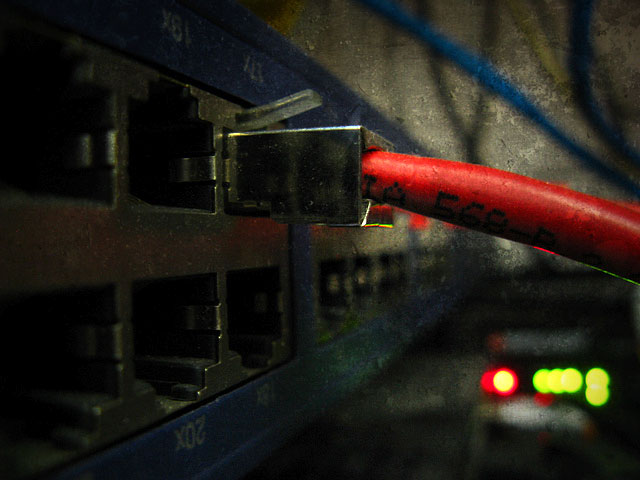
Ajit Pai, President Trump’s Republican pick to head the Federal Communications Commission (FCC), is already sparring with media reformers just weeks into his term. On Thursday, a coalition of 40 racial justice, labor and digital rights groups demanded that the commission reverse a recent order that they say has canceled subsidized internet service for 17,500 low-income customers.
On February 3, the FCC began to roll back several Obama-era reform efforts, including orders allowing nine telecom companies to provide Lifeline services to people who have trouble affording internet service. The decision could make it difficult if not impossible for tens of thousands of low-income families and students to get online, according to the digital advocacy group Free Press.
Under Pai, the FCC has also begun to undo agency efforts to keep media consolidation in check, examine net neutrality issues in mobile services and enhance transparency in political advertising.
Lifeline has provided discount phone service for low-income customers since 1985. Last March, the FCC issued an order modernizing the program to include broadband internet access in response to growing concern that low-income people and communities of color are being left behind as access to high-speed internet expands nationwide.
The reform groups argue that the FCC should implement the order swiftly and push more resources into the program instead of kicking companies off the list of eligible providers.
“Lifeline … is the only federal program poised to bring broadband to poor families across the US so that they can connect to jobs, complete their homework, and communicate with healthcare providers and emergency services,” the groups wrote in a letter to the FCC.
Pai defended the FCC’s decision in a blog post earlier this month, pointing out that there are hundreds of other companies that provide Lifeline services, and the FCC is only “reconsidering” the nine companies’ eligibility for the program in order to root out “waste, fraud and abuse.” He added that the National Tribal Telecommunications Association had requested that some of the companies be reconsidered.
However, critics say the move undermines a key program for keeping the poor connected and raises doubts about Pai’s claims that he is as dedicated to “bridging the digital divide” as he claims to be.
What is the digital divide? A recent Free Press report based on Census data found that nearly 90 percent of households with incomes above $100,000 have internet access, compared to only 49 percent of households with incomes below $20,000. Internet adoption rates among Blacks and Latinos are also lower than among whites.
”Affordable access to broadband is critical for people to access modern opportunities,” said Olivia Wein, an attorney with the National Consumer Law Center, in a statement. “We urge the Commission to swiftly implement the March 2016 modernization order so that children can complete their homework at the kitchen table instead of at a fast-food counter.”
Pai has his own proposals for addressing the digital divide, including using tax incentives to encourage companies to expand high-speed internet in needy areas and directing billions of dollars toward “infrastructure development.” These top-down proposals would be a boon for telecom companies, unlike a program like Lifeline, which directly benefits consumers who can’t afford access otherwise.
Pai, who leads a 2-1 Republican majority on a commission awaiting the appointment of two new members, claims he supports modernizing Lifeline to expand internet access, but says the FCC needs to make sure that telecom providers and customers are not defrauding the universal fund that pays for it. His critics say the original modernization order the commission has already made “extensive progress” in curbing fraud and abuse.
Pai and his fellow Republican commissioner, Michael O’Rielly, also angered advocates on Thursday by rolling back transparency requirements for smaller internet service providers that were part of the 2015 net neutrality rules established under former FCC Chair Tom Wheeler, who resigned earlier this year.
Pai was a vocal opponent of the 2015 net neutrality package approved under Wheeler. The package was a hard-fought win for activists: It allows the government to regulate broadband more like a public utility that everyone needs.
The transparency rules required internet service providers to disclose information about their products, prices and network management services to regulators, but providers with up to 250,000 customers are now exempt.
O’Rielly and Pai argue the requirements created unnecessary costs for small businesses, but advocates worry it’s just the beginning of a broader assault on net neutrality.
“Here’s how cost-benefit analysis works in the Trump administration and at the Pai FCC: If any favored lobby like the cable industry claims that rules cost them money, the agency will zap those rules — without any regard for their benefits,” said Free Press Policy Director Matt Wood.
Pai has long shown interest in deregulation initiatives supported by the industry, and he is expected to face fierce opposition from consumer groups as FCC chair.
Our most important fundraising appeal of the year
December is the most critical time of year for Truthout, because our nonprofit news is funded almost entirely by individual donations from readers like you. So before you navigate away, we ask that you take just a second to support Truthout with a tax-deductible donation.
This year is a little different. We are up against a far-reaching, wide-scale attack on press freedom coming from the Trump administration. 2025 was a year of frightening censorship, news industry corporate consolidation, and worsening financial conditions for progressive nonprofits across the board.
We can only resist Trump’s agenda by cultivating a strong base of support. The right-wing mediasphere is funded comfortably by billionaire owners and venture capitalist philanthropists. At Truthout, we have you.
We’ve set an ambitious target for our year-end campaign — a goal of $250,000 to keep up our fight against authoritarianism in 2026. Please take a meaningful action in this fight: make a one-time or monthly donation to Truthout before December 31. If you have the means, please dig deep.